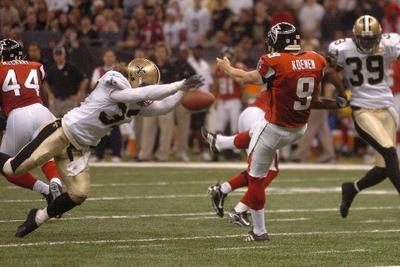Here's another article illustrating how political correctness is strangling our culture in its cradle. Jeffery Taylor is the dance critic of the London
Times and a former dancer himself, and he gives an anguished lament about how few leading ballet dancers in Britain, or for that matter just members of the corps de ballet, are native born dancers:
"The top half of any British ballet company is now occupied by foreigners. Royal Ballet is going through a golden age at the moment, but the top dancers are Romanian, Spanish, Ukrainian, Danish and Cuban."
The reason he gives is one I would never have thought of, but it's so obvious once stated. As in much of the US, teachers in the UK are not supposed to have any physical contact with their students, all in the name of "protecting" children. But how can you possibly succeed in teaching ballet if you're not allowed to touch your students? You can't teach it just with words. Sometimes you have to
show your student how to stand or move, by gently guiding his body with your hands. How do you teach when this is forbidden?
I never danced ballet, but I did play the violin, so I understand completely. Correct left hand playing position, while not as unnatural and artificial as classic ballet positions, is awkward and must be physically taught. Let me try and show you. Hold your left hand up at the level of your shoulder, about 14 inches straight out forward with your wrist turned around so your fingers are cupped towards your shoulder. Make sure you're sitting up straight and everything's aligned straight up and down. Now take your right hand and, without moving anything else, drag your left elbow to the right as far as you can.
Hurts, doesn't it? But without that position you'll never get full freedom of movement up and down the fingerboard. I started taking private lessons at about age nine, and if my first teacher, Gil Gleason, hadn't been able to touch me, to repeatedly move my elbow with his hand to where it needed to be, he would never have been able to teach me properly.
There's another thing Taylor touches on. Every student starts out thinking that the limits of his ability are less than they really are, and one of the biggest tasks of the teacher is to push the student beyond what he thinks he's capable of. And sometimes the necessary methods are not gentle.
When I was an undergrad at UCLA I played in the first violin section of the American Youth Symphony, composed of the best young musicians from all over Southern California, and conducted by Mehli Mehta, Zubin Mehta's father. Mr. Mehta (we would never have dared call him Mehli) was very old school, having grown up in Bombay in the 20s. He had a very distinguished international career as a concertmaster, conductor, and chamber musician, before coming to teach at UCLA in 1964. (He was also my violin teacher.)
In addition to his immense knowledge and skill as a musician and orchestra leader, he had one very effective tool for motivating us and getting the best out of us during rehearsals: screaming. He was perfectly content to be civil if things were going well, but if he thought we weren't giving him all we were capable of he let us have it, good and hard. Some resented this, but I knew from studying privately with him that this was not a sign of contempt or disrespect, but exactly the opposite. He cared deeply for all his students, much too much to let them settle for just being good enough. He
would not let us be anything but the best, and he did what he had to do in order to meet that goal. It worked, too. We
were the best.
But all that seems to be gone now. Taylor says that teachers are now supposed to be respectful of their students' opinions, and limit their demands to what the kids are willing to do. How do you push a child to discover his true abilities if you limit yourself to what he already thinks he can do? He recounts:
"When I was a child either they would scream at you, or sit and look at you, or say 'I am going out for a cup of tea; if you manage to jump let me know.' If a teacher did that today they would be arrested."
For the student, one of the most thrilling things in the world is when you do push past what you thought were your limits and can say to yourself, "Whoa! I didn't know I could do that!!" Is it really "respectful" of a child to deny him this epiphany? To deny him the chance to truly grow, by declining to demand of him more than what he thinks is his best? In my opinion, hell no.
